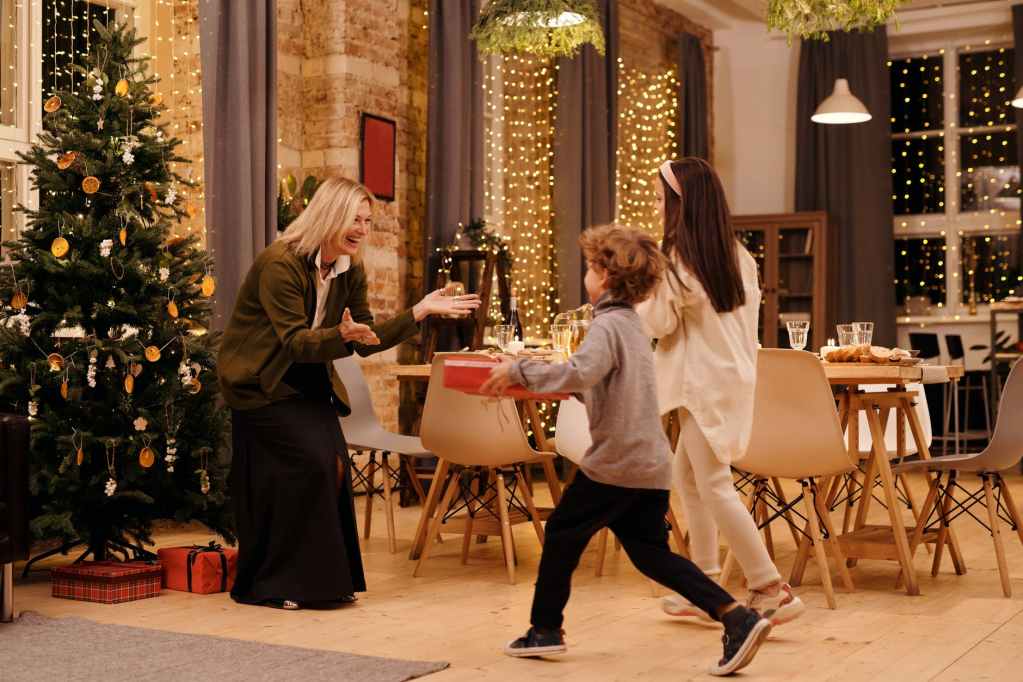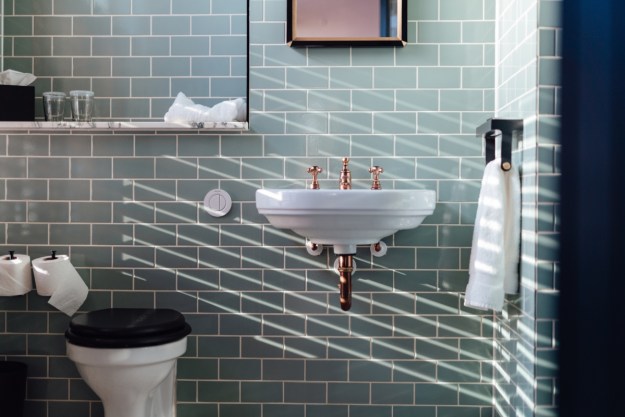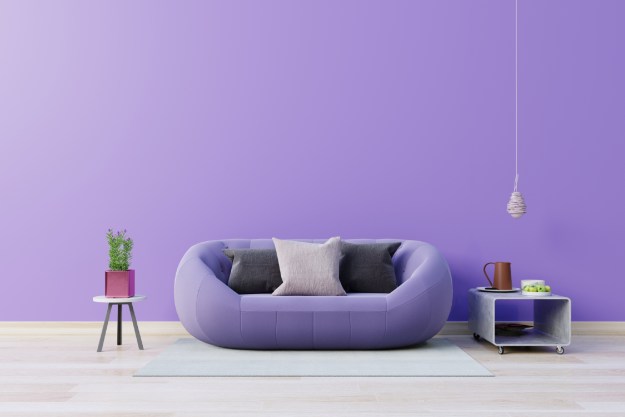The holiday season seems to come earlier and earlier every year. (We’re sure you’ve already seen stores advertising their Christmas stock.) But fall is a time for celebration, whether you’re decorating your home with seasonal decor, making the perfect butternut squash soup for Thanksgiving, lighting a menorah, or setting up a Christmas tree. But in order to make room for fall decor, Thanksgiving centerpieces, and holiday decorations — not to mention make the house presentable for all those overnight guests — first we have to declutter our homes.
- Don’t bite off more than you can chew
- Let others benefit from things you no longer use
- Decide what should stay and what should go
- Create a system that will work for you
- Clean up the kitchen before the holidays
- Make sure you have linens worthy of your guests
- Create space for holiday presents
- Don’t hide the mess
- Switch out your clothes
- Declutter and organize the garage
- Get the whole family involved
Not only can this make you feel more relaxed, but this is the perfect time to take stock of what you own and figure out what you do and don’t need. Getting rid of things that are no longer important or necessary will allow you to free up space for the things that really matter.

Don’t bite off more than you can chew
Many people make the mistake of looking at decluttering and organizing as one huge project. That can make it harder than it has to be.
If you set out to do too much in a day or a weekend, you’ll feel stressed out before you even begin. Once you get started, you’ll probably feel overwhelmed. You might dread the thought of organizing your home so much that you procrastinate or don’t tackle the project at all.
Set manageable goals. According to Rachel Ferdaszewski of Serenispace, which focuses on home organization, “The first thing is to break it down into smaller chunks. Deciding to get your whole house organized is pretty overwhelming.”
Splitting the job into pieces, such as organizing the kitchen or a closet, can make it easier. “I like to have my clients pick a specific room to start in,” Ferdaszewski said.
Let others benefit from things you no longer use
Even if something is no longer useful to you, it can be useful to someone else. Look for local organizations that are willing to accept donations of used clothing, nonperishable food, and household items.
Ferdaszewski advises people to figure out where to donate items and create a plan before they begin decluttering. She helps her clients identify organizations that will accept donated items.
“Something that was useful or special to them in some way, they have a desire for it to go to a good home,” Ferdaszewski said. “I have access to a resource list that will talk about specific items charities are looking for.”
If you’re decluttering on your own, Ferdaszewski offered this advice: “Do a little bit of research ahead of time so you know where you’re going to take these items.” If you know where things need to go before you get started, you’ll be able to get rid of them quickly.
Decide what should stay and what should go
Ferdaszewski uses the acronym SORT to help clients decide what to do with items they come across while decluttering. She has clients divide their belongings into four categories:
- Things that will stay
- Items that will get offloaded (donated, returned to the person they were borrowed from, etc.)
- Thins that will be relocated (i.e., kept in the house, but not in the same room)
- Items to be trashed
For belongings that are to be relocated and offloaded, Ferdaszewski recommends making a pile in the same room, rather than immediately taking an item to a different room to put it away. Walking from room to room could cause you to get distracted from the task of decluttering. For example, if you go to the kitchen to put something away, you may decide to unload the dishwasher before you return to the room you were organizing.
Once you’ve finished decluttering an area and made a pile of items to donate or throw away, Ferdaszewski recommends getting those things out of the house as soon as possible. That way, you won’t feel stressed every time you walk by and see the pile.
Create a system that will work for you
After you’ve figured out what to get rid of and what to keep, find homes for the things that will stay. It may be helpful to buy some storage containers, but first, you’ll need to decide what to keep so you get containers in the right styles and sizes.
Ferdaszewski said choosing a storage system is a personal decision. She advises homeowners to use “whatever kind of storage system works for the space they have. Some people will store things under the bed. There are several products you can get for under-the-bed storage,” such as bins and vacuum bags.
Clean up the kitchen before the holidays
Before you start to think about holiday cooking, get your kitchen in order. If you’re like most people, you have lots of pots, pans, small appliances, and gadgets in your kitchen, but you rarely or never use many of them.
- Go through each cabinet and create separate piles for things that you use and intend to keep and others that you can donate, sell, or throw away.
- Empty out cabinets and throw away anything that’s expired. If you have food that’s still good, but you know your family won’t eat it any time soon, donate it. Look through the fridge and freezer, too. You may be surprised to find some containers with food that you can’t identify.
- Once you’ve decided what to eliminate, organize what you have left. That will make it easy to figure out what ingredients you need to buy and to find the tools you need to prepare a holiday dinner.
Make sure you have linens worthy of your guests
Look through your linen closet and check the condition of your sheets and towels. Organize linens so you know how many complete sheet sets and blankets you have. That will help you figure out if you need to buy more before you entertain guests over the holidays. If your towels are looking worse for wear, consider donating them to a local animal shelter or veterinarian’s office and buying some new ones.
Create space for holiday presents
If you have kids, they’ll probably get a pile of gifts for the holidays. You’ll need to find homes for all those new toys, books, and clothes. Figure out what can go so your home doesn’t get overwhelmed by clutter.
According to Ferdaszewski, when it comes to getting rid of kids’ toys to make room for holiday presents, it “depends a little bit on the child.” With her own kids, she said, “We spend a day during the fall going through everything and make space for the gifts that they’re going to get.”
Ferdaszewski noted that getting rid of current belongings to make room for gifts that will be received in the future might not work with all kids. “With younger children, that is a little too abstract,” she said. “Better to do it after the gifts have arrived. Give away toys to younger children to make room for big kid toys.”
Don’t hide the mess
Ferdaszewski said when clients have guests coming to visit for the holidays, they sometimes feel stressed out by an impending deadline and try to cut corners to make the house appear clean and organized. She said that can lead to even more stress.
She advises people to “avoid the temptation to create a ‘doom closet.’” In other words, don’t shove a bunch of things in a closet and hope that your guests won’t open the door. “The mental stress is going to be more draining than you think it will be,” Ferdaszewski said.
Switch out your clothes
If you live in a region where the weather is dramatically different in the fall and winter than it is during the spring and summer, take some time in the early fall to rotate your clothing and footwear. Put garments that you’ll use in the colder months in bedroom and hall closets and warm-season clothing in other areas, such as under beds or in the basement or attic.
This may be a fairly large undertaking, especially if you have a large family and lots of clothes. Thankfully, it’s not something you’ll have to do often. “You really only need to rotate your clothes out two times a year for most people,” Ferdaszewski said.
Rotating out your clothes will free up valuable space and make it easier to find things you need. “I think the biggest thing with winter and fall clothing is that it takes up more space,” Ferdaszewski noted. Storing off-season clothing somewhere else will allow you to have warm clothes, coats, gloves, and boots readily available when they’re needed.
When you rotate your clothes, take the opportunity to weed out items that you no longer need, that are worn out, or that your kids have outgrown. Donate clothes that others could use and discard the rest. Then you won’t have to search for a sweater or scarf in a crowded closet.
Declutter and organize the garage
Fall is also a good time to clean out your garage. It may be filled with tools and supplies that you use to care for vehicles, not to mention children’s toys and other odds and ends.
- Remove any vehicles from the garage so you can take stock of everything that’s in there. Figure out which items belong in the garage and find a home for others or donate them.
- If you find any tools that are damaged, have them repaired or discard them. This is also a good time to make sure that you have shovels in a place where they’ll be easy to reach and that your snow blower is ready for the season.
- Decide how to organize the supplies in your garage. Depending on what you have, storage bins, shelves, and hooks on the walls may be useful.
Get the whole family involved
Don’t try to declutter and organize all on your own. Get all family members involved if they’re able to help. Even toddlers can handle some simple tasks. Including your kids in the cleaning process can help them understand the importance of being organized and instill positive habits from a young age. Make it fun by playing music or having contests.







